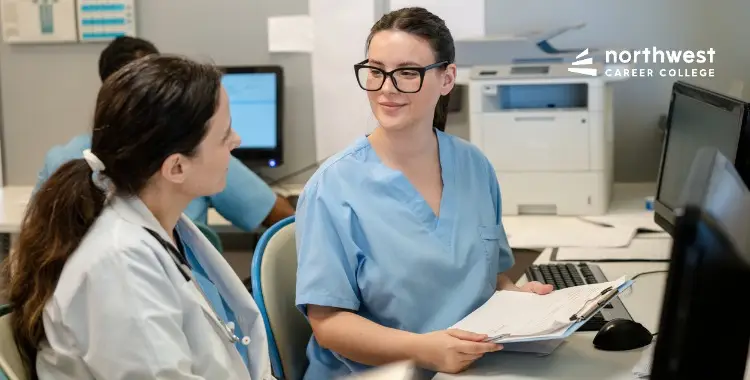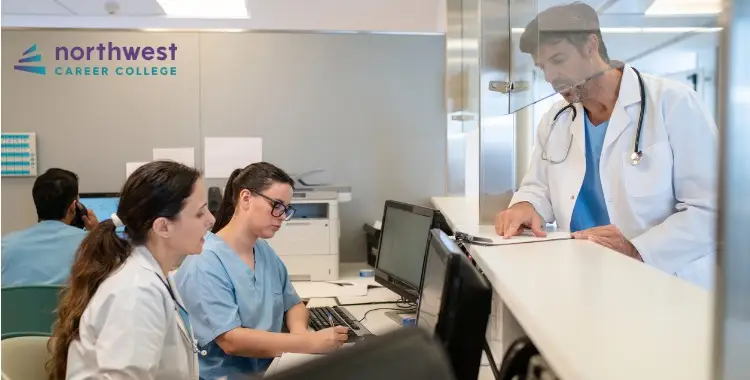Patient Interaction: Essential Strategies for Medical Administrative Assistants
- Medical Administrative Assistant
- June 26, 2024
- 1.7k views
- 3 min read

Medical administrative assistants may face difficult situations, especially when dealing with challenging patients. This blog post offers practical advice and strategies for handling complex interactions effectively while maintaining a professional and positive environment in healthcare settings.
Table of Contents
Role of Medical Administrative Assistants
Medical administrative assistants provide essential support for medical office operations. They manage patient records and schedule appointments, often serving as patients’ first point of contact. Handling complex patients with tact and efficiency is advantageous and necessary for the seamless functioning of medical facilities.
Signs of a Difficult Interaction
Complex interactions can manifest in various forms. Emotional distress is standard, with patients often anxious or upset about their health or wait times. Some might display aggressive behavior, either verbally or physically, expressing anger or frustration.
Other difficult clients may have unreasonable demands, expecting things beyond the scope of standard policies or practices. Recognizing these signs early helps in preparing and responding appropriately.
Effective Communication Techniques
Effective communication plays a vital role in managing complex patient interactions. Active listening is crucial when dealing with anxious patients. It is essential to show empathy and understanding without interrupting them.
Communicating policies and procedures clearly can help avoid misunderstandings. Using simple language can ensure comprehension. Maintaining professionalism is also essential. Keeping a calm and steady voice can help prevent situations from escalating. Addressing patients respectfully, regardless of the circumstances, can prevent many conflicts from worsening.
De-escalation Strategies
De-escalation is crucial when dealing with difficult interactions. Remaining calm can set a calming tone for the interaction. Offering solutions and focusing on problem-solving rather than the conflict can also help de-escalate a situation. It’s important to identify when a situation necessitates escalation within the facility, whether to higher medical staff or security and to have a clear protocol for such escalations.
Building Rapport with Patients
Establishing a good relationship with patients can significantly improve complex interactions. You can build trust by personalizing your interactions, such as using the patient’s name and showing genuine interest in their well-being. Referring to past interactions and expressing gratitude for their patience and understanding, especially after a challenging interaction, reinforces a positive relationship.
Handling Stress and Self-care
As a medical administrative assistant, it is essential to manage stress effectively. One of the best ways to do this is by taking short breaks regularly, which can help you refresh and return to your duties.
Seeking support from supervisors or colleagues and discussing stressful interactions can also help you find ways to handle similar situations better in the future. Engaging in activities outside of work that help reduce stress, such as exercising, reading, or pursuing hobbies, is essential for overall well-being.
Conclusion
Dealing with complex patients is inevitable for a medical administrative assistant. However, these challenges can be managed effectively with the right tools and techniques. Effective communication strategies, understanding how to de-escalate tense situations, and caring for your well-being can create a more positive experience for patients and yourself. You can excel in this demanding yet rewarding field with dedication and the right approach.




